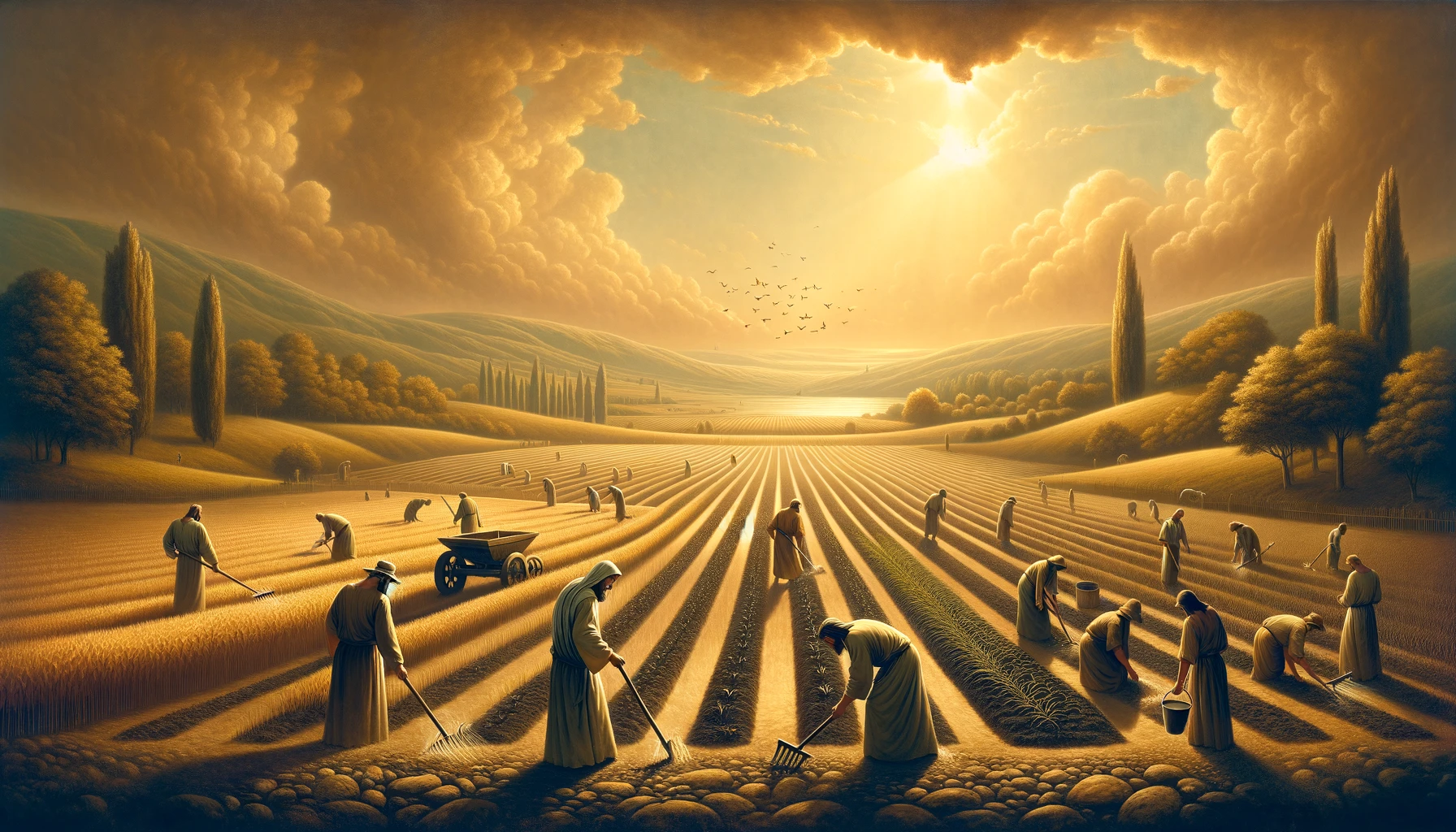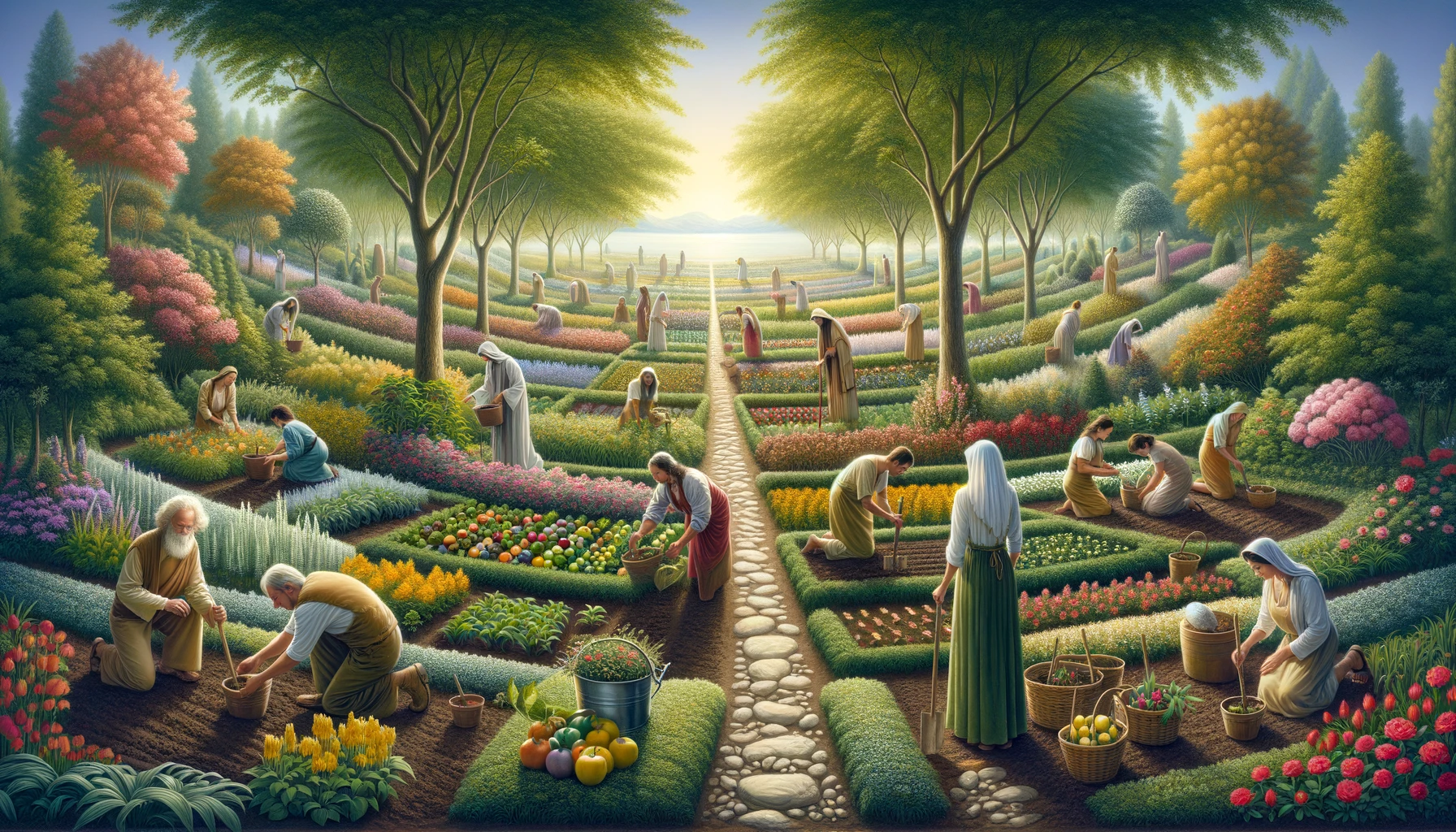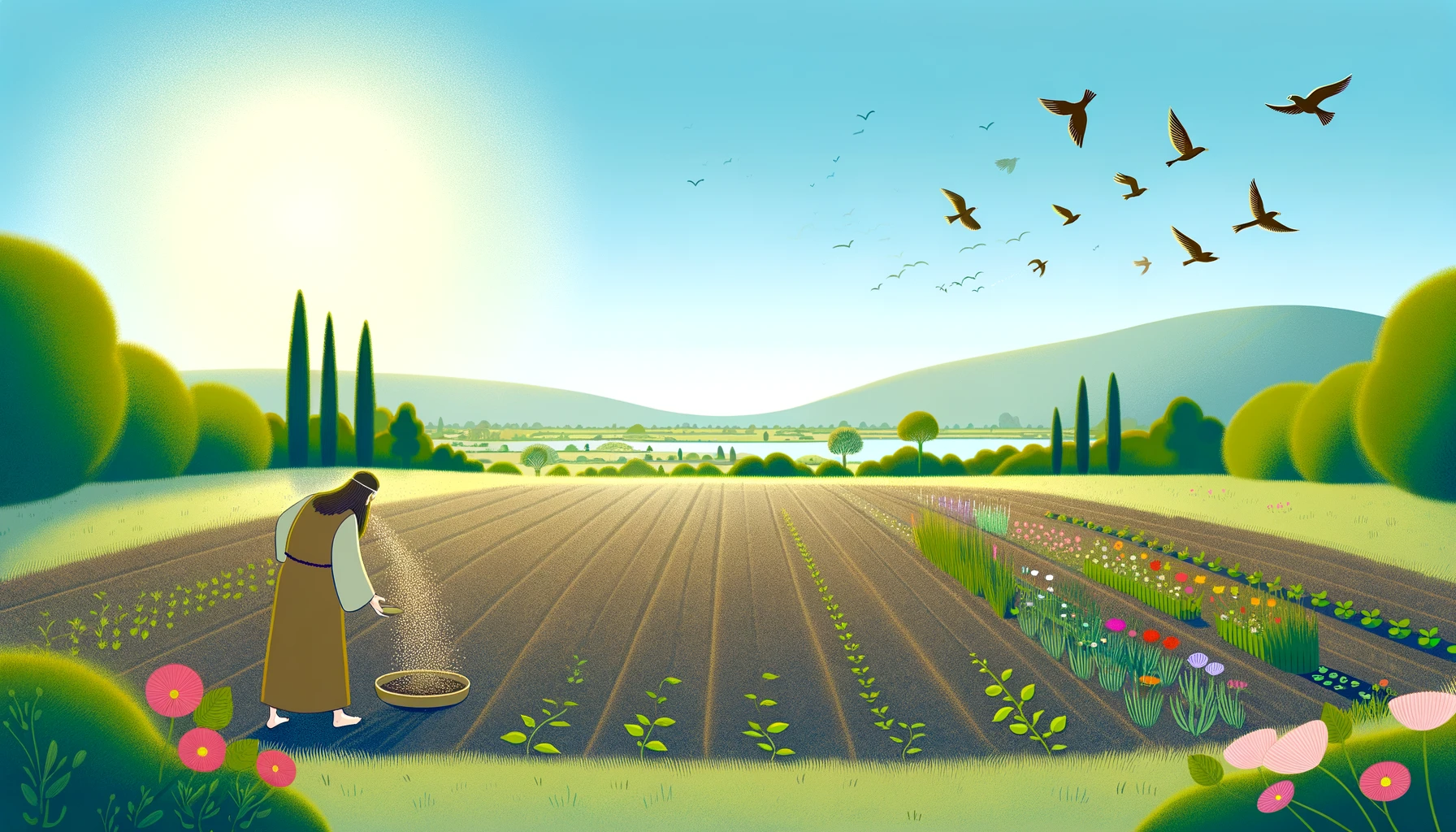The Bible talks about seed planting in the literal and metaphorical sense. When you read a seed planting Bible verse, it often refers to actual farming practices (Genesis 1:29). For example, the Hebrew Israelites gave crops as offerings to the Lord (Numbers 18:12). Planting a seed can symbolize faith, spiritual growth, and our relationship with God. For instance, in Matthew 13:3-23, the seed represents the Word of God. Now, look deeper into this biblical concept to see how it enriches your Christian walk.
Table of Contents
- Key Takeaways:
- Old Testament Verses About Planting Seeds
- New Testament Verses About Planting Seeds
- Types of Seed Planting in the Bible
- What We Can Learn From a Seed Planting Verse
- Conclusion
Key Takeaways:
- The Bible employs seed planting as a metaphor for faith and spiritual growth.
- Seed planting encompasses both agricultural and righteous seeds.
- Lessons include growth, potential, faith, sowing and reaping, receptiveness to God’s Word, and generosity.
- Overall, seed planting Bible verses emphasize faith, patience, and trust in God’s timing for spiritual development.
Old Testament Verses About Planting Seeds

And God said, Let the earth bring forth grass, the herb yielding seed, and the fruit tree yielding fruit after his kind, whose seed is in itself, upon the earth: and it was so. And the earth brought forth grass, and herb yielding seed after his kind, and the tree yielding fruit, whose seed was in itself, after his kind: and God saw that it was good.
Genesis 1:11-12 (KJV)
Here, we see the initial act of creation. The Lord commanded the earth to produce vegetation, seed-bearing plants, and trees. The verse demonstrates the life-sustaining power of God’s Word.
“In the morning sow thy seed, and in the evening withhold not thine hand: for thou knowest not whether shall prosper, either this or that, or whether they both shall be alike good.”
Ecclesiastes 11:6 (KJV)
This passage encourages God’s people to remain active and do good. Don’t worry about whether your actions will bear fruit. The key is to use your time and resources wisely. It teaches us that God will bless us when we engage in fruitful activities.
“For he shall be as a tree planted by the waters, and that spreadeth out her roots by the river, and shall not see when heat cometh, but her leaf shall be green; and shall not be careful in the year of drought, neither shall cease from yielding fruit.”
Jeremiah 17:8 (KJV)
This verse highlights a person who trusts the Lord. They are like a tree situated near water. What does this mean? Faith leads to continuous nourishment. You can keep growing despite your challenges as long as you have faith.
New Testament Verses About Planting Seeds

“And he spake many things unto them in parables, saying, Behold, a sower went forth to sow; And when he sowed, some seeds fell by the way side, and the fowls came and devoured them up: Some fell upon stony places, where they had not much earth: and forthwith they sprung up, because they had no deepness of earth: And when the sun was up, they were scorched; and because they had no root, they withered away. And some fell among thorns; and the thorns sprung up, and choked them: But other fell into good ground, and brought forth fruit, some an hundredfold, some sixtyfold, some thirtyfold.”
Matthew 13:3-8
Jesus tells the Parable of the Sower story. He describes where seeds fall on different types of ground. The ground represents the various ways individuals respond to the Word of God. The parable challenges believers to cultivate a life that bears fruit.
“But this I say: He who sows sparingly will also reap sparingly, and he who sows bountifully will also reap bountifully.”
2 Corinthians 9:6
The verse encourages generosity. The Apostle Paul equates the acts of giving with sowing seeds. He explains that our giving can yield an abundant spiritual harvest. In other words, it promises God will reward those who give from the heart.
“Do not be deceived: God cannot be mocked. A man reaps what he sows.”
Galatians 6:7-9
The opening lets us know we can’t outsmart God. We can’t bypass His principles and moral laws. The passage emphasizes our choices have consequences. The Apostle Paul uses the farming analogy of sowing and reaping to explain this concept. The verse encourages us to live a life of righteousness, integrity, and generosity. Why? Because those behaviors will produce a harvest of blessings.
Types of Seed Planting in the Bible

1. Agricultural Seeds
The Bible makes references to the physical act of planting seeds. It reflects the agricultural life of ancient times.
- Deuteronomy 28:8 – “The Lord shall command the blessing upon thee in thy storehouses, and in all that thou settest thine hand unto; and he shall bless thee in the land which the Lord thy God giveth thee.”
- Joel 2:24-25 – “And the floors shall be full of wheat, and the vats shall overflow with wine and oil. And I will restore to you the years that the locust hath eaten, the cankerworm, and the caterpiller, and the palmerworm, my great army which I sent among you.”
- Proverbs 20:4 – “The sluggard will not plow by reason of the cold; therefore shall he beg in harvest, and have nothing.”
2. Righteous Seeds
The Bible speaks of sowing seeds of righteousness. The verses spotlight the need for believers to do what’s right in God’s eyes.
- Proverbs 11:18 – “The wicked worketh a deceitful work: but to him that soweth righteousness shall be a sure reward.”
- Hosea 10:12 – “Sow to yourselves in righteousness, reap in mercy; break up your fallow ground: for it is time to seek the Lord, till he come and rain righteousness upon you.”
- 2 Corinthians 9:10 – “Now he that ministereth seed to the sower both minister bread for your food, and multiply your seed sown, and increase the fruits of your righteousness;)”
- James 3:18 – “And the fruit of righteousness is sown in peace of them that make peace.”
What We Can Learn From a Seed Planting Verse

The metaphor of planting a seed carries profound spiritual and moral significance. Here’s a deeper look into what this metaphor means:
Growth and Development
Planting a seed symbolizes the beginning of a growth process. A seed buried in the soil must grow. When believers “plant” themselves in biblical teachings, they can grow spiritually. This process is often slow and requires patience. It mirrors the gradual growth of a seed into a mature plant.
Potential and Transformation
As a metaphor, a seed highlights the potential contained within even the smallest seed (Matthew 17:20; Luke 17:6). A small seed can grow into a large plant or tree. This process symbolizes the transformative power of faith. The Kingdom of God starts small within an individual but can grow to have a significant impact.
Faith and Trust
Planting a seed is an act of faith in the natural processes to turn a seed into a plant. This mirrors the faith believers must have in God’s promises. For example, a farmer plants seeds, trusting they will grow in due season. Likewise, Christians can trust God’s timing, even without immediate results.

Sowing and Reaping
The Bible often refers to the principle of sowing and reaping. Scriptures do this literally and figuratively (Galatians 6:7-9; 2 Corinthians 9:6). This principle underscores the idea that actions have consequences. What one sows, they will also reap. It warns us against sowing to the flesh (sinful nature). Instead, it encourages believers to sow to the Spirit (spiritual life). The result is a harvest of righteousness for those who sow in faith and obedience.
The Word of God as Seed
The Parable of the Sower (Matthew 13:3-23) uses the seed metaphor to describe how different people receive the Word of God. The seed falling on good soil represents those who hear the Word, understand it, and produce a bountiful harvest of spiritual fruit. This aspect of the metaphor emphasizes being receptive to God’s Word for spiritual growth and effectiveness.
Generosity and Giving
The metaphor also extends to the concept of generosity. Planting seeds can symbolize acts of kindness, giving, and service. As believers sow generously into the lives of others and the Kingdom of God, they can expect to reap bountifully in spiritual rewards and blessings (2 Corinthians 9:6).
Conclusion
Almost any seed-planting bible verse can give you insight into God’s Kingdom. As a metaphor, planting seeds illustrates spiritual birth, growth, and maturity processes. It teaches how faith can bring change. Additionally, seed planting signifies the need for patience and trusting God’s timing.








